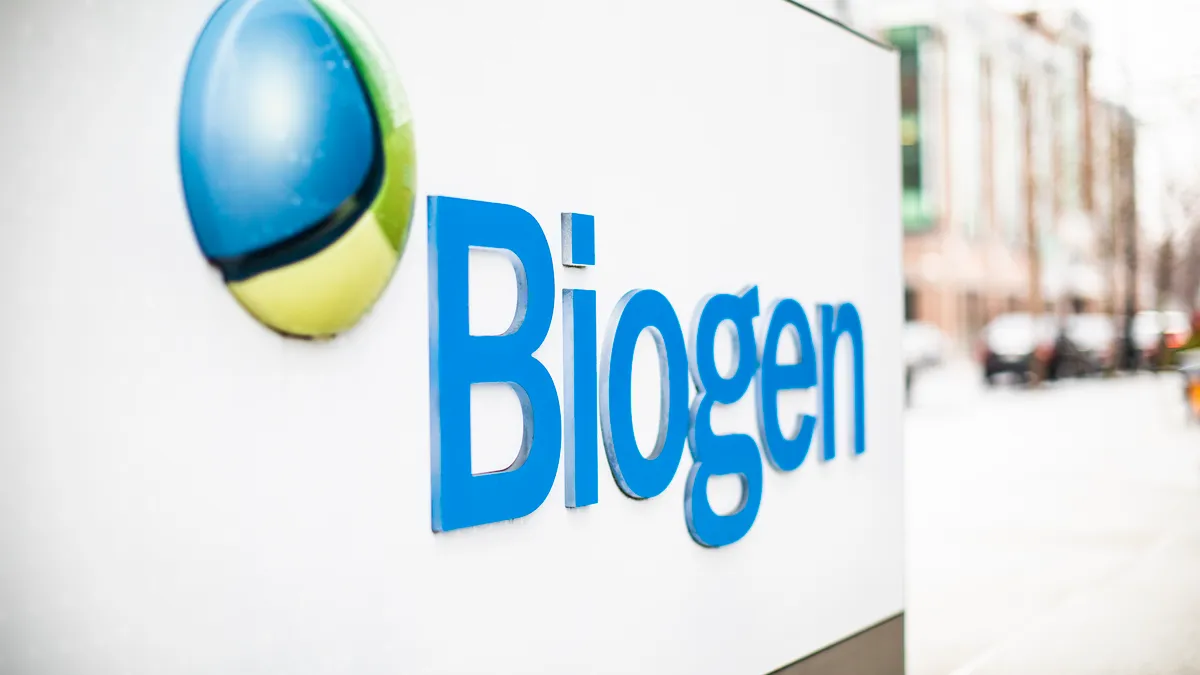One of two drugs being developed by Biogen and Sage Therapeutics failed a mid-stage study, pushing both companies to announce they would not be moving forward with further development. The $1.5 billion partnership now hinges on an approved drug that has already faced challenges.
Last week, the companies announced that SAGE-324 failed to beat placebos in a mid-stage study of patients with essential tremor, and the companies are axing an open label study as a result.
The relationship between Sage and Biogen began in 2020 in a $1.5 billion agreement to jointly develop SAGE-324 and depression treatment Zurzuvae, which has since been approved for postpartum depression. Now, with SAGE-324 soon out of the picture, Biogen may be hoping to squeeze more out of Zurzuvae.
At the same time the FDA approved Zurzuvae in postpartum depression last year, the agency rejected it for a second indication in major depressive disorder. MDD is a much larger market than PPD — an estimated 500,000 women in the U.S. have PPD each year compared to about 21 million U.S. adults with MDD — and the current approval may be dampening the drug’s full revenue potential. Sage laid off 40% of its workforce and announced a series of C-suite changes as a result of the rejection.
Biogen also laid off 11% of its workforce, about 1,000 employees, last year. However, Biogen noted that uptake momentum for Zurzuvae was “encouraging” in the first three months of 2024, with sales jumping to $12 million after hitting just $2 million in the fourth quarter of 2023. And the total sales potential for PPD could be as high as $500 million, BioPharma Dive reported in April. The companies said at the time they would review next steps for an MDD approval.
It’s unclear if Biogen and Sage are still pursuing an MDD indication — neither company mentioned its prospects for MDD in their most recent earnings report. Studies of Zurzuvae in MDD yielded mixed results, and the FDA noted additional trials are needed.
But Sage has high hopes for Zurzuvae for PPD. CEO Barry Greene sees “blockbuster potential” in the PPD space, and plans to make Zurzuvae a first-line therapy and the standard of care, he said during the company’s first quarter earnings call.
Biogen’s blows
The setbacks with Sage have not been the only troubles for Biogen in the past few years. The pharma company faced an uphill battle with its Alzheimer’s program after it announced it was pulling its beleaguered Alzheimer’s treatment Aduhelm from the market in January. The drug received accelerated approval from the FDA in 2021 but faced a wave of criticism that the drug didn’t work, and the controversy resulted in three FDA officials leaving their posts.
Biogen has since allocated its Alzheimer’s resources to its other treatment Leqembi, approved in 2023. Sales for Leqembi, developed with Eisai, reached only $10 million in 2023, but have ticked up to $19 million during the first quarter of 2024. And with Eli Lilly’s Alzheimer’s treatment donanemab approved early July, Biogen is in for a showdown to boost sales and increase patient uptake.
Biogen and Eisai got hit with a negative opinion from the European Medicines Agency this month for Leqembi’s approval in the European Union, but Eisai said it would seek re-approval from the EMA.
Sage also suffered a setback this spring when it discontinued a Parkinson’s disease drug when it did not meet the primary endpoint in a phase 2 study.
In the aftermath of the Alzheimer’s failures, Biogen rebounded with a revenue win from a drug it acquired in its $7.3 billion takeover of Reata Pharmaceuticals last year. Skyclarys, which treats Friedreich’s ataxia, reeled in $78 million in revenue during the first quarter of 2024.
Biogen told BioPharma Dive in April it will continue to diversify to build a new pipeline.













